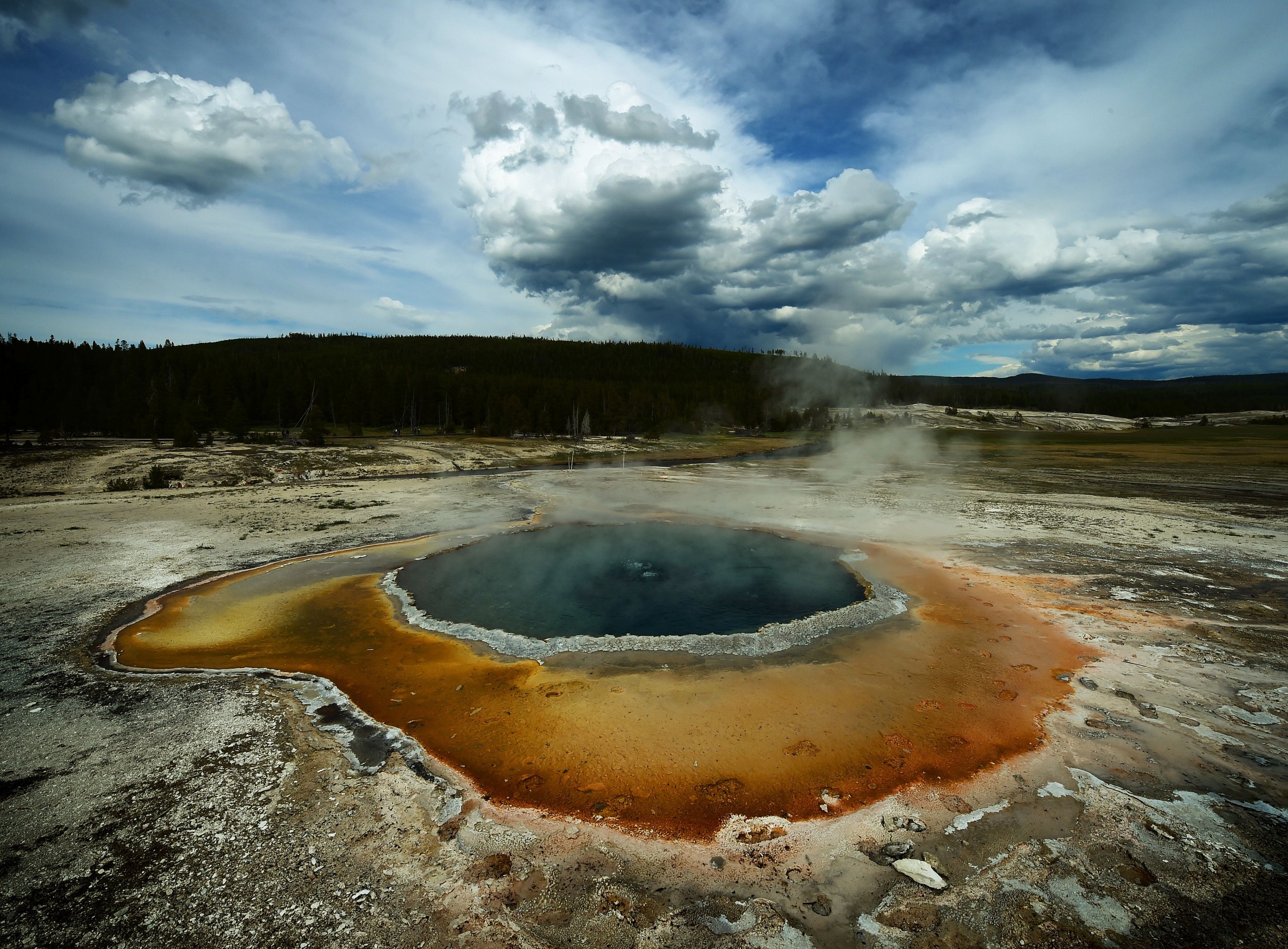
It's one of the internet's favorite fears: The giant supervolcano fast asleep beneath Yellowstone National Park somehow rumbles to life and puts us all out of our misery. But while geologists have never seen it happen (the last supereruption was 631,000 years ago) and it's unlikely to happen any time soon, they now have a pretty good sense of what they'd see—and they know they haven't seen anything like it.
"Some volcanic systems just seem to be in a perpetual state of unrest, and Yellowstone is one of those," scientist-in-charge at the U.S. Geological Survey's Yellowstone Volcano Observatory, Michael Poland, told Newsweek. That unrest is scientifically fascinating, which is why researchers monitor the region from the ground and from space. And if a supervolcano eruption did somehow begin, Poland said, we'd definitely notice. "Man, the changes would be so much bigger than anything we've ever seen."
In order for a supervolcanic eruption to begin, he said, a truly huge amount of magma would need to rise to the surface, and that would have very clear consequences. "You've got to break a lot of rock to move that much magma," he said.
Scientists would be looking for three symptoms of that behavior in the data they gather from Yellowstone: an uptick in earthquakes, which would show up on seismic monitors; increased ground deformation as hot liquids slosh around below the surface, which scientists watch from satellites; and temperature changes in water features like geysers, which can be monitored remotely.
There's another clue that's helpful at other volcanoes—watching for increased amounts of gas coming out of the ground. But that wouldn't be much help at Yellowstone, where unlike a traditional volcano that produces gas at a fixed point, Yellowstone's releases would be spread over a huge area, making them difficult for scientists to spot.
That all sounds bad, sure, but the probability of anything big actually happening is tiny, Poland said. "Yellowstone is one of these examples of an extreme hazard but an extremely rare hazard as well."
Earthquakes are a significantly more likely threat than an eruption. Although quakes are a signal of moving magma, they can also occur completely independently. At more delicate volcanoes, Poland said, a large earthquake might trigger volcanic activity, but Yellowstone is just too fast asleep. "It clearly hasn't responded to any earthquakes in the last 70,000 years."

Nevertheless, Poland and scientists like him are keeping their eyes on seismological data and everything else they can gather about Yellowstone. And in a few years, scientists will have even better information to work from. That's because NASA is working on a new radar satellite that will be better able to catch ground deformation, even when it's hidden under vegetation.
"It has been a really eventful summer, we did have that large earthquake swarm and it really is one of the largest swarms we've detected over the last few decades," Poland said. But that's a reason to be curious, not afraid. "We're going to learn something new about Yellowstone thanks to this swarm."
Poland says it's been a strange experience to study something that so many visitors fall in love with and so many internet-dwellers fear. He's trying to find ways to encourage the former and reassure the latter. "Yellowstone is just not that close to erupting," he said. "I'm far more worried about driving to work in the morning and getting offed in a car accident."
Uncommon Knowledge
Newsweek is committed to challenging conventional wisdom and finding connections in the search for common ground.
Newsweek is committed to challenging conventional wisdom and finding connections in the search for common ground.
About the writer
Meghan Bartels is a science journalist based in New York City who covers the science happening on the surface of ... Read more
To read how Newsweek uses AI as a newsroom tool, Click here.






